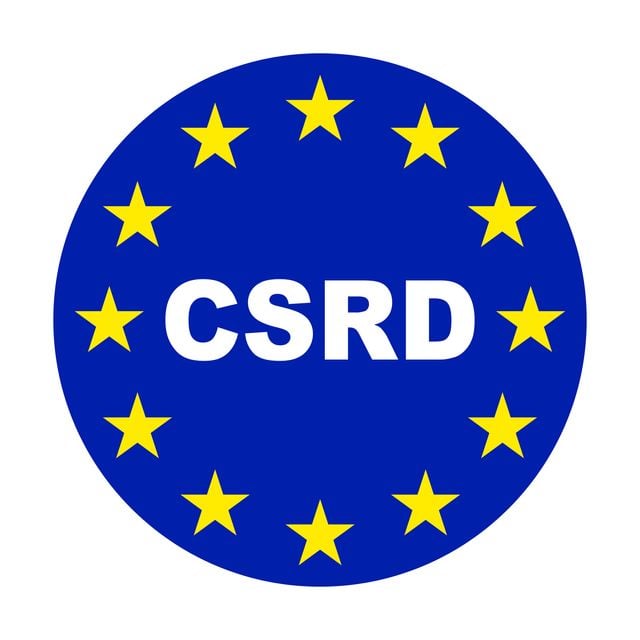In anticipation of Ireland’s foreign direct investment (FDI) screening regime becoming operational in the coming months, the Department of Enterprise, Trade and Employment (DETE) has published new draft guidance (entitled Inward Investment Screening, Guidance for Stakeholders and Investors, the "Guidance”).
The regime will introduce for the first time:
- A mandatory notification requirement for certain investments into Irish businesses (including an Irish subsidiary of an international company, and/or Irish-held assets);
- A risk of criminal liability for individuals and companies who fail to notify and delays to closing timetables for affected deals.
In this update, Ropes & Gray provides an overview of the legislation and based on our experience advising clients on their FDI filings around Europe, our insight into how the new regime is expected to operate.
Headlines
- Investments made by investors from outside the European Union, the EEA and Switzerland ("third countries”) in Irish-held assets (including, for example, IP rights) or Irish companies (including subsidiaries) which are active in a variety of sensitive sectors (including in some cases the pharmaceuticals and technology sectors) will be subject to mandatory notification;
- A Screening Notice (containing details on the reason that screening is being conducted and other relevant information) will be issued to the notifying parties “as soon as practicable” after notification. Once a Screening Notice has been issued, the clock will start on a screening review of up to 90 calendar days and transaction must not close until clearance is issued;
- All parties to a transaction have an obligation to file, although it is expected that the acquirer takes responsibility for notifying on behalf of all parties. This may technically include minority co-investors whose investment does not itself trigger a notification requirement creating a significant additional notification burden, out of step with other jurisdictions;
- Failure to notify carries a risk of criminal liability.
What transactions are impacted
The new regime requires third-country investors to notify acquisitions of control of Irish assets (including IP) or undertakings, which are engaged in certain specified sectors or activities, where the value of the transaction is €2 million or more. Also caught by the notification requirement are changes in voting rights from: (i) 25% or less to more than 25% and (ii) 50% or less to more than 50%.
The notification regime is due to come into operation in September 2024 and will raise a mandatory filing requirement for any in-scope transactions which have not closed by that point in time. This must be factored into deal timetables now, with appropriate springing conditions included where relevant. Deals completed in the 15 months prior to the implementation of the legislation may also be subject to DETE’s call-in powers.
Identifying whether a target business is active in one of the five relevant sectors
As with other national FDI regimes, the activity of the target business is a key determinant in whether a notification needs to be made and, based on our experience, extensive diligence will often be required to determine whether a company falls within the scope of the regime.
The Irish Screening of Third Country Transactions Act, 2023 (the Act) which underpins the new regime takes an incredibly wide view, specifying that transactions relating to, or impacting upon, any of five identified sectors will fall within its scope. The Guidance provides some helpful signposting to assist in interpreting whether a target’s activities meet the characterisation of those sectors. These are set out in further detail in the table below.
| Sector | Criteria |
| Critical infrastructure | Does the infrastructure provide an essential service? Would an incident have a significant disruptive event on the provision of an essential service? A broad list of 11 sectors and subsectors is included at Annex 1 to the Guidance. This identifies, for example, energy, public transport, water, health and digital. Also includes within its scope: medical device and pharmaceutical manufacturers, providers of cloud computing and data centre services, as well as food wholesalers and producers. See further: EU Directive 2022/2557 |
| Critical technologies and dual use items | Do the target’s activities relate to or impact on critical technology or items, including software and technology, which can be used for both civil and military purposes? This limb has the potential for wide application to technology transactions. It will include technologies relating to artificial intelligence, robotics, semiconductors, cybersecurity, aerospace, defence, energy storage, quantum, and nuclear technologies as well as nanotechnologies and biotechnologies. See further: Regulation (EU) 2021/821, including the Cryptography Note found under Category 5 Part 2 Council Common Position 2008/944/CFSP |
| Critical Inputs | Is the target engaged in the extraction, production or supply of any critical raw material? Annex 2 of the Guidance provides the current list of Critical Raw Materials which includes, for example:
See further: Annex II of European Commission, Proposal for a Regulation of the European Parliament and of the Council Establishing a Framework for Ensuring a Secure and Sustainable Supply of Critical Raw Materials, COM(2023) |
| Sensitive information | Does the target hold a substantial volume of sensitive data which is an essential or critical part of its business? Does the target’s business model depend on generating turnover from sensitive data? Sensitive data includes:
|
| Freedom and Pluralism of the Media | Is the target a media business? For example, a newspaper publisher, broadcaster, provider of current affairs programming content, online provider of current affairs content? Where relevant, an inward investment screening review will be conducted alongside but separately from the media merger process set out in Part 4 the Competition and Consumer Protection Act 2014. |
Who is responsible for submitting a notification
While the Act does not specify which of the parties to a notifiable transaction must notify, the Guidance sets out that, in practice, the acquiring party is expected to take responsibility for submitting the notification. All parties to a transaction have an obligation to ensure that the information being submitted is accurate, to the extent that they are aware that a notification is being made.
The regime’s treatment of minority investors and co-investors raises concerns for dealmakers. While such investments may not reach the requisite level to trigger a mandatory notification requirement in themselves, (e.g., because they do not involve the acquisition of a shareholding of 25% or more), if the investment takes place in the context of a wider transaction, minority investors are arguably “parties to a notifiable transaction” for the purposes of the notification (s.10 of the Act). Clarification is required to confirm that, consistent with other national FDI regimes, this provision does not act to either impose an independent notification obligation on minority investor(s) (with associated penalties for a failure to notify) or to require minority investor(s) to provide information requested in the notification form.
The Guidance confirms that ‘portfolio investments’ (i.e., acquisitions of shares on capital market for the purposes of financial investment) do not carry a mandatory notification requirement unless 25 percent or more shares are being acquired by a third country undertaking.
Notification process
DETE published a draft notification form alongside the Guidance. The form must be completed and submitted online via DETE’s dedicated case management system. Once a notification form is submitted, DETE must provide all parties to the transaction with a Screening Notice as soon as practicable thereafter, and the clock then starts on the screening review. Once a Screening Notice is issued, a transaction may not close until the screening review has been completed.
The Act provides for a 90 calendar-day screening process. In exceptional circumstances, the time period may be extended by DETE by up to 45 calendar days, where further time is required to assess and/or mitigate risk. In addition, the clock can be stopped if further information is formally requested from the parties. However, the Guidance states that the 90-day time period is the outer bound of the time permitted to complete the screening process, not the intended target. It specifies that “in practice many notified transactions will be cleared quicker than this if the evidence supports such an outcome”
We do expect lengthy review periods during the regime’s initial phase of operation. However, there appears to be cognisance within DETE that a 90-day review period is both unnecessarily long and likely to create substantial discomfort for inward investors. We would therefore expect that once the regime has bedded in, the review timetable will be more in line with the Irish merger control regime which has a 30 calendar day review period at phase 1.
Consequences of a failure to notify
Failure to notify a notifiable transaction gives rise to a risk of criminal penalties being imposed on investors (including fines and imprisonment for directors who exercise control over the acquiring entity). The Act also specifies other criminal offences including: (i) closing a transaction that is subject to a Screening Notice prior to a screening decision being issued; (ii) completion of a prohibited transaction, and (iii) the provision of false information either as part of a notification or in response to a formal request.
Transactions that should have been, but which were not notified, can be called in for a screening review for a period up to five years after the completion of a transaction, and within 6 months of DETE becoming aware of the transaction. The Guidance does not contain provisions on what constitutes awareness of a transaction.
Comment
Ireland is among the last of the EU Member States to introduce an FDI regime and while DETE works its way up the FDI learning curve, other countries such as France and the UK (as well as the European Commission - see our article here) have already indicated that they will be refining their FDI legislation during 2024 in order to make processes more targeted and manageable.
The scope of the new Irish regime is exceptionally wide and, given the serious consequences of a failure to notify, DETE is likely to receive a large number of precautionary (and perhaps unnecessary) notifications. Further consideration could be given to narrowing the target activities which will trigger notification to, for example, research and development in certain specified sectors. This would unburden those entities which have a limited local presence (such as a sales office only), and accordingly, are a low risk to public order or the security of the State.
It is essential that systems are in place to allow for efficient and timely review of non-problematic deals, while also providing bandwidth for a deeper review of transactions which carry a greater risk to security and public order. While longer review periods are to be expected in the initial start-up phase of the new regime, the outer limit of 90-days must not become the norm. Guidance can be taken from the Competition and Consumer Protection Commission’s merger regime which, based on recent statistics, clears the majority of non-problematic mergers in under 24 days.
Information requirements for minority investors must be proportionate and commercially realistic. Given the serious consequences for failure to provide correct information and the current lack of clarity on whether minority investors will be considered as notifying parties, DETE must be aware that placing disproportionate obligations on minority shareholders has the potential to chill inward investment in Irish assets and companies.
For further information and details about the new Irish FDI regime, please reach out to the us or another member of the Antitrust team at Ropes & Gray.
Subscribe to Ropes & Gray Viewpoints by topic here.
Authors
Stay Up To Date with Ropes & Gray
Ropes & Gray attorneys provide timely analysis on legal developments, court decisions and changes in legislation and regulations.
Stay in the loop with all things Ropes & Gray, and find out more about our people, culture, initiatives and everything that’s happening.
We regularly notify our clients and contacts of significant legal developments, news, webinars and teleconferences that affect their industries.





